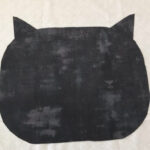Cats, with their discerning palates, often surprise us with their unexpected food preferences. While your feline friend might be intrigued by the crunchy texture of a cucumber, you might wonder, “Can Cats Eat Cucumbers safely?” The answer is yes, cucumbers can be a refreshing and hydrating snack for your cat in moderation. In fact, these cool green veggies offer a few health perks for your kitty, alongside some considerations to keep in mind. Let’s delve into the benefits and potential risks of feeding cucumbers to your feline companion.
The Nutritional Perks of Cucumbers for Cats
While cats are obligate carnivores and thrive primarily on meat-based diets, cucumbers can offer some supplemental health advantages when given as an occasional treat.
Hydration Boost
Cucumbers boast an impressive water content of around 95%, making them a fantastic source of hydration for your feline friend. This is particularly beneficial for cats who may not drink enough water on their own, especially those primarily eating dry kibble. Adequate hydration is crucial for a cat’s overall well-being, helping to prevent serious health issues such as kidney problems and urinary tract infections. Offering a few slices of cucumber, especially on warmer days or as a refreshing treat, can contribute to your cat’s daily fluid intake.
Low-Calorie Treat Option
If you’re looking for a guilt-free snack to offer your cat, cucumbers are an excellent choice. They are naturally low in calories and fat, making them a suitable treat, particularly for cats who are watching their weight or prone to weight gain. Instead of calorie-dense commercial treats, a small piece of cucumber can satisfy your cat’s desire for a snack without contributing to unwanted weight gain.
Vitamins and Minerals (in Moderation)
Although cucumbers shouldn’t replace a balanced cat food diet, they do contain some vitamins and minerals that can offer minor health benefits. These include:
- Vitamin K: Essential for healthy blood clotting and liver function in cats.
- Vitamin C: An antioxidant that aids in supporting a healthy immune system and overall vitality.
- Molybdenum: A trace mineral that plays a role in supporting a cat’s metabolic processes.
- Magnesium: Important for various bodily functions, including nerve and muscle function, healthy blood pressure, and blood glucose regulation.
- Potassium: Helps in regulating blood pressure and maintaining proper nerve and muscle function.
Furthermore, cucumber skin contains fiber, which, in small amounts, can be beneficial for digestion and may help alleviate occasional constipation in cats. However, remember that a high-quality cat food is formulated to provide all the essential daily nutrients your cat needs, so cucumbers should be considered a supplemental treat, not a dietary staple.
Potential Dental Benefits
The crisp, crunchy texture of cucumber can offer a mild dental benefit for cats. Chewing on cucumber pieces can help to gently scrape away minor plaque build-up from their teeth. However, it’s crucial to understand that cucumbers are not a substitute for a comprehensive dental care routine. Regular tooth brushing and professional veterinary dental cleanings remain essential for maintaining your cat’s oral health.
Cucumber Risks for Cats: Things to Consider
While cucumbers offer some benefits, it’s important to be aware of potential risks when offering them to your feline companion.
- Choking Hazard: Large pieces or chunks of cucumber can pose a significant choking hazard for cats. Always ensure you cut cucumbers into small, bite-sized, and manageable pieces that are easy for your cat to chew and swallow safely.
- Pesticide Exposure: Non-organic cucumbers can have pesticide residue on their skin. To minimize this risk, opt for organic cucumbers or peel non-organic ones before offering them to your cat. Regardless of whether the cucumber is organic or not, always wash it thoroughly before giving any part to your cat.
- Digestive Issues: Cucumbers, especially the peel, contain a relatively high amount of fiber. While a little fiber can be helpful, a cat’s digestive system isn’t designed to process large quantities. Overfeeding cucumbers could lead to digestive upset, such as mild diarrhea or stomach discomfort. Moderation is key to prevent digestive issues.
- Harmful Seasonings: Never offer seasoned cucumbers to your cat. Many common seasonings are harmful or even toxic to felines. Garlic and onion, for instance, can cause life-threatening anemia in cats, while excessive salt intake can lead to salt poisoning. Always serve cucumber plain, without any added salt, spices, or dressings.
- Allergic Reactions (Rare): Although uncommon, cats can be allergic to virtually any food, and cucumbers are no exception. If you observe any signs of an allergic reaction in your cat after they eat cucumber, such as itching, swelling, vomiting, diarrhea, or difficulty breathing, seek immediate veterinary attention.
In conclusion, cucumbers can be a safe and hydrating treat for cats when offered in moderation and prepared correctly. They provide minor nutritional benefits and can be a low-calorie snack option. However, always prioritize safety by cutting cucumbers into small pieces, washing them thoroughly, and serving them plain. If you have any concerns about introducing cucumbers into your cat’s diet, it’s always best to consult with your veterinarian for personalized advice.


